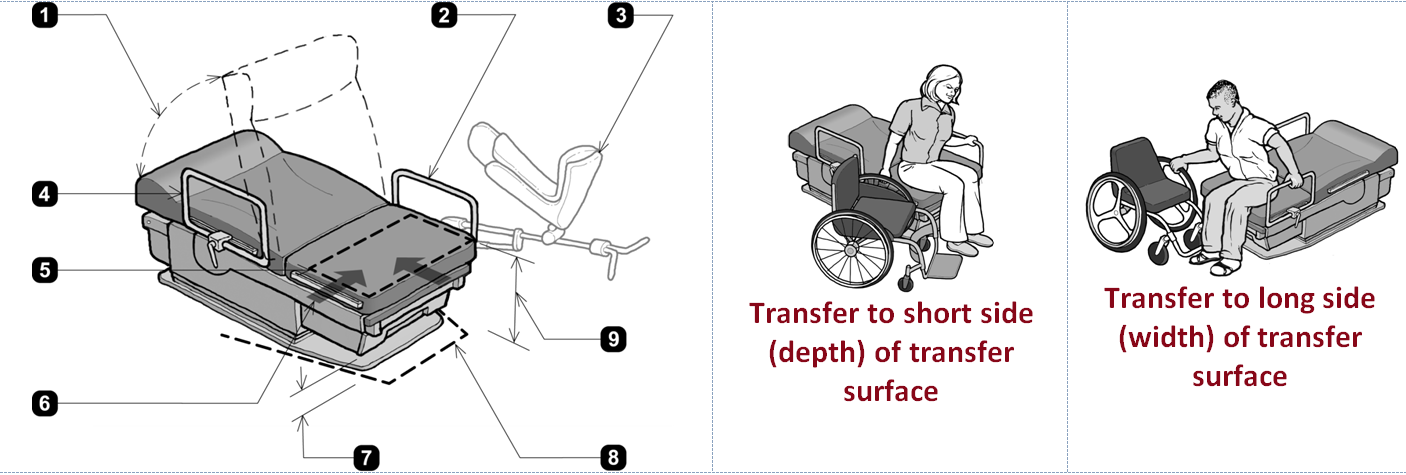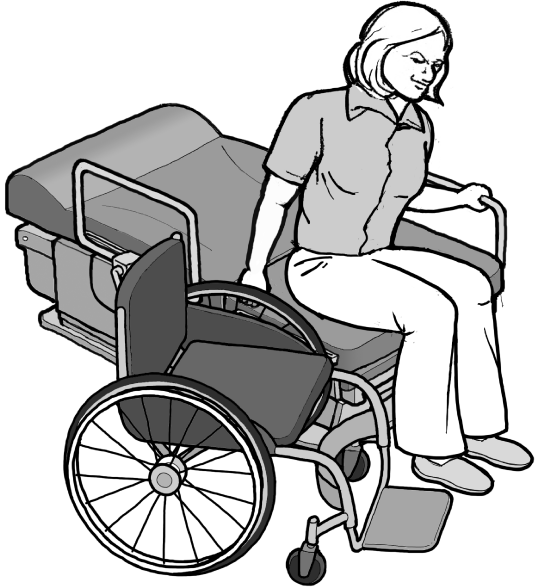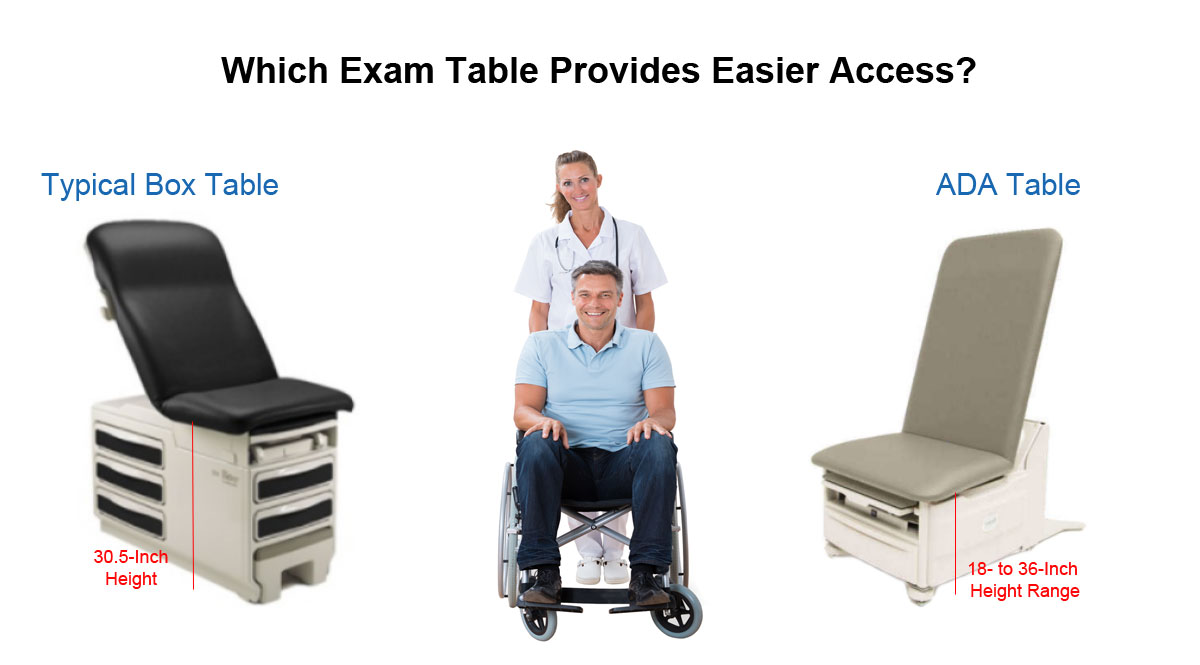Types of hospital transfers include bed to stretcher bed to wheelchair wheelchair to chair and wheelchair to toilet and vice versa.
Transferring patient from wheelchair to examination table.
Position wheelchair as close as possible to the bed or area where you plan to perform transfer.
Pull bed sheet down to the foot end of the bed.
High lowe exam tables and stretchers would be ideal.
When transferring a patient from a wheelchair to an exam table you should.
A caregiver must be present for this type of transfer.
When moving patients you should.
You may need to use transfer aids such as a gait belt a sliding board or a mechanical lift to help move a person.
When transferring a patient from a wheelchair to the examination table the medical assistant should always assist the patient on the persons strong side.
Make sure you are using good body mechanics to transfer.
Transferring an individual from a bed to a wheelchair.
Use a gait belt.
Assessment algorithm document page 8 of 28.
3 7 patient transfers transfers are defined as moving a patient from one flat surface to another such as from a bed to a stretcher perry et al 2014.
During any patient transferring task if any caregiver is required to lift more than 35 pounds of a patient s weight then the patient should be considered to be fully dependent and assistive devices should be used for the transfer.
Wheelchair to bed transfer techniques.
Stand very close to the person while you transfer him.
To get the patient into a seated position roll the patient onto the same side as the wheelchair.
Move from your hips.
A wheelchair transfer is when you move a person into or out of a wheelchair.
Suggest to the person who is transferring out of the bed to face up and scoot to the end of the bed where the caregiver is positioned.
The task of transferring a patient from the exam table to his wheelchair can seem daunting particularly if your size is disproportionate to his.
True an example of manipulation is assisted range of motion rom exercises.
An exam table transfer should be a series of coordinated and cooperative movements between yourself and the patient.
These transfer aids can help make transfers safer and easier for you and the person that you are moving.
21 2 ambulating patients who use transfer.
Allow the patient to sit for a few moments in case the patient feels dizzy when first sitting up.
Before transferring into the wheelchair the patient must be sitting.




























